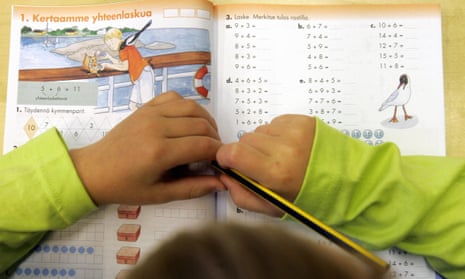The world has been broadly successful in harnessing economic growth to improve delivery of basic needs, but rising wealth is less effective in tackling more intractable, less tangible problems like intolerance and exclusion, and policies to tackle these are needed, according to the latest Social Progress Index.
Finland came top of the index, which ranked 133 countries on the extent to which they meet the social and environmental needs of their citizens. It was followed by Canada, Denmark, Australia, Switzerland, Sweden, Norway, Netherlands, the UK, Iceland, New Zealand and Ireland.
Central African Republic, which has been dogged by decades of violence culminating in a 2013 coup that exposed deep ethnic, political and sectarian rivalries, was in last place, just below Afghanistan.
The US was the most significant underperformer among industrialised nations, ranking 19th in the index, which was created to provide an alternative to measurements of progress based solely on gross domestic product, or economic output.
The index, published by the US-based, non-profit Social Progress Imperative, calculates whether citizens have access to basic services, opportunities, healthcare, education, housing, decent policing, rights and freedom from discrimination. It compiles its scores based on more than 50 indicators.
Rich countries tend to do better than poorer countries but wealth alone does not explain the rankings. For example, Finland and Canada have lower GDP per capita than the US but significantly outperform it.
“Our data shows that economic growth is generally a good thing. It’s just not the whole story, and especially when it comes to issues like tolerance, it does seem that just by getting richer, we are not going to make much progress in making our societies tolerant. What we need are other solutions, other policies, and that’s a challenge for rich and poor countries,” said Michael Green, executive director of the Social Progress Imperative.
“Getting a bit more wealth gives you the resources to put in water pipes, put in schools with teachers, whereas getting a bit more GDP doesn’t necessarily bring you more tolerance, and may actually set you backwards on environmental performance, or may lead to new problems in health and wellness, such as obesity.”
The US, which has a GDP per capita of $52,118 (£39,000), scored poorly on environmental quality, health and wellness and personal safety – and this was despite spending more per capita on healthcare than any other country.
“The US underperforms on personal safety because of homicide rates, terror and traffic deaths. Its also underperforms on access to basic knowledge,” Green said.
“The US healthcare system is expensive. It’s got some of the best healthcare in the world but … too many people are excluded. The poorer US score is picking up the fact that so many people are not being covered,” he added.
The UK, with a GDP per capita of $38,178 achieved “exceptional” outcomes on access to advanced education (3rd overall), environmental quality (2nd) and personal rights (2nd), the report said.
However, its 20th place ranking on health and wellness was described as “distinctly average”, and attributed mainly to an obesity rate of 25%. Life expectancy for those aged 60 is 84 years, behind Japan at 86.4 years and Italy at 85.2 years.
“The strongest negative signal for the UK is on obesity and clearly that has a lot to do with lifestyle factors,” Green said.
Countries’ over- and underperformance was calculated against a group of 15 countries most similar in terms of GDP per capita, using a four-year average. Among the overperformers were Costa Rica, Rwanda and New Zealand. Green said consistent effort was key to achieving good levels of progress.
“Costa Rica introduced universal primary education at the end of the 19th century, it created a welfare state in the 1940s, it stopped spending on the military at pretty much the same time, so Costa Rica is doing so well because it has spent a long time investing and building up this stock of social progress.”
Another important pillar is genuine political will, and a strong vision of which areas need to be prioritised.
The most significant underperformers are the Gulf States: Saudi Arabia ranks 65th with a GDP per capita of $49,537 while Kuwait, with a GDP per capita of $69,878, ranks 45th. Several other resource rich countries perform poorly as well, including Russia and Nigeria.
“There is a real problem with the resource curse,” Green said. “Countries that have lots of resource wealth really do struggle to turn that into social progress and some of the biggest underperformers are countries with natural resource wealth.”
In Europe, former Communist countries that were in the first wave of states to enter the EU perform well, and the SPI said this “suggests that EU membership has been strongly beneficial to social progress”.
At the top of the table, the power of wealth alone to advance social progress seems to wane above a certain threshold. New Zealand, which has a GDP per capita of $32,816, is ranked almost as high as oil-rich Norway, on $63,421.
“For low- to middle-income [countries], there is a lot of social progress that can be bought with a bit of economic growth … There is a very positive message about economic growth – that it brings resources and if those resources are spent on social progress, we can see big jumps for low-income countries,” said Green.
“[But] it’s not an automatic process. GDP isn’t destiny. What we then see is how that curve flattens out. As countries get richer, each extra dollar of GDP is buying less and less social progress and maybe some of those tradeoffs start to matter more, so how much is an extra dollar of GDP worth? Maybe we should be focusing more on how we squeeze social progress out of our existing GDP.”
